james knox polk
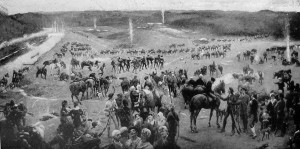 October 7, 1780, was the beginning of the end of British rule in The Colonies. The Battle of King’s Mountain would be a battle that the British would never forget. Fewer than one thousand American Heroes, used skills and strategies that no one expected them to have to defeat Major Patrick Ferguson, who was the star of the British military might. Benjamin, James, Robert, and Samuel Knox, ancestors of my husband, Bob Schulenberg, were four of those heroes. The Knox brothers walked away from the battle without being wounded. In reality so did most of the 900 Patriots who participated in the battle. In the end, while the number of casualties reported varies from source to source, some of the most commonly reported figures are that 225 Loyalists had been killed, 163 wounded and 716 were captured, while only 28 Patriots were killed, including Colonel James Williams, and 68 wounded. The outcome of this battle was disastrous for the British, and especially for Major Patrick Ferguson, who died there.
October 7, 1780, was the beginning of the end of British rule in The Colonies. The Battle of King’s Mountain would be a battle that the British would never forget. Fewer than one thousand American Heroes, used skills and strategies that no one expected them to have to defeat Major Patrick Ferguson, who was the star of the British military might. Benjamin, James, Robert, and Samuel Knox, ancestors of my husband, Bob Schulenberg, were four of those heroes. The Knox brothers walked away from the battle without being wounded. In reality so did most of the 900 Patriots who participated in the battle. In the end, while the number of casualties reported varies from source to source, some of the most commonly reported figures are that 225 Loyalists had been killed, 163 wounded and 716 were captured, while only 28 Patriots were killed, including Colonel James Williams, and 68 wounded. The outcome of this battle was disastrous for the British, and especially for Major Patrick Ferguson, who died there.
Major Patrick Ferguson came to North Carolina in September 1780, and with the plan of recruiting troops to join the Loyalist militia to protect the flank of Lord Cornwallis’ main force. Ferguson issued a ultimatum to the rebel militias to lay down their arms or suffer the consequences. Apparently, he didn’t understand the Patriots at all…not an unusual mistake for the enemies of the United States, even today. That ultimatum led them to react alright, but not in the way Ferguson had expected. The Patriot militia led by Benjamin Cleveland, James Johnston, William Campbell, John Sevier, Joseph McDowell and Isaac Shelby rallied for an attack on Ferguson. Major Ferguson, realizing the seriousness of his error, attempted to retreat to the safety of Lord Cornwallis’ army, but never made it.
The battle took place 9 miles south of the present day town of Kings Mountain, North Carolina in rural Cherokee County, South Carolina. Because the arrival of the Patriots was almost a complete surprise, the Loyalists suffered heavy casualties. The battle lasted just one hour, after which Major Patrick Ferguson lay dead, and his men, either dead, wounded, and/or captured, but not a single one of Fergusons men had escaped. The Patriots did have to retreat quickly, so they would not be there in the event of a counterattack from Lord Cornwallis’ army, but they left Kings Mountain completely victorious. It was the beginning of the end for British rule in the United States. No longer would The Colonies be looked at as simply fledglings in need of guidance, nor would they be looked at as a small insignificant army, but rather they would be respected as a worthy opponent.
Historians agree that the Battle of Kings Mountain was the “beginning of the end” of British rule in its former colonies. In less than one hour of battle, The Overmountain Men, as they were called, not only won the day, but also undermined the British strategy for keeping America under its control. Such a defeat, as that suffered by Major Patrick Ferguson, is rare in any war. Ferguson thought that his position on Kings Mountain was one that would make an attack nearly impossible, without advance warning. The plateau of the mountain was just large enough to serve as a battleground for his command and to provide space for his camp and wagon train. There was water nearby. The slopes of the mountain would hinder the advance of the attackers. When attacked he expected that any retreat would be rendered impossible by flanking or encircling detachments, a condition he desired, because he would see to it that his men stood and fought, rather than run away. From Patrick Ferguson’s point of view, there was no better position than the one he had found. How very wrong he was.
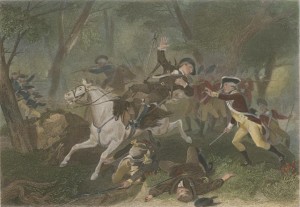
The Knox family went on to play an illustrious and important role in American history. They were descendants of Charlemagne and the British House of Plantagenet, established by Henry II and Eleanor of Acquitaine, whose exploits were told in the movie, The Lion in Winter. They were of the same family as Richard, the Lionhearted, King John who was forced to sign the Magna Carta, and John Knox, the famous Scottish reformer, who railed against the reign of Mary, Queen of Scots. This family produced the man who would become the eleventh President of the United States of America: James Knox Polk. They were a family that my husband’s family has long been proud to be a part of.
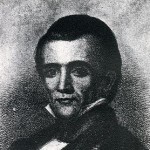 They say that children learn what they live, and we all know that is true in many ways. What I find interesting is that when there is a family that has political ties, often they extend way back. Of course, with new people being introduced into the family with marriages and births, things can change, and move away from the ties that had been there before, but often they continue on for generations. That is the case in the Knox family, which is one of the families my husband, Bob comes from. His mom and grandparents were very much not political, but in generations past, there were several presidents in his family, with the one most well known to us being James Knox Polk, who is Bob’s 2nd cousin 5 times removed. I know that is pretty distant, but then, he lived from 1795 to 1849, so it would have to be.
They say that children learn what they live, and we all know that is true in many ways. What I find interesting is that when there is a family that has political ties, often they extend way back. Of course, with new people being introduced into the family with marriages and births, things can change, and move away from the ties that had been there before, but often they continue on for generations. That is the case in the Knox family, which is one of the families my husband, Bob comes from. His mom and grandparents were very much not political, but in generations past, there were several presidents in his family, with the one most well known to us being James Knox Polk, who is Bob’s 2nd cousin 5 times removed. I know that is pretty distant, but then, he lived from 1795 to 1849, so it would have to be.
There are also, the presidents who are a little more distant, but still come from the Knox family. Presidents like Andrew Jackson, George HW Bush, and George W Bush. The 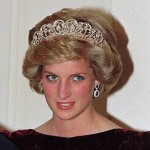 connections are a little harder to find, because they involve the in-laws and their marriages, but they are nevertheless a familial connection. I suppose that if we go far enough back, we will find a president or some royalty in pretty much every family. It stands to reason when you consider the various family connections. As marriages and births occur, and family connections are formed, it becomes more and more a real possibility. For some of us, like Bob’s family’s political ties, and my family’s tie to Princess Diana and the British Royal Family, the connections are well known to us from the time we are children. For others, those connections are not discovered until much later on, and some never know that a connection exists. To me that is sad, because I have thoroughly enjoyed finding out who I am related to…and I have been very surprised too. Both Bob and I are related to Princess Diana and her children, so the birth of Prince George was particularly exciting to me. Even though the royal family is not exactly a political tie in the normal sense of the word, they are still the ruling family in England, and so political in that way.
connections are a little harder to find, because they involve the in-laws and their marriages, but they are nevertheless a familial connection. I suppose that if we go far enough back, we will find a president or some royalty in pretty much every family. It stands to reason when you consider the various family connections. As marriages and births occur, and family connections are formed, it becomes more and more a real possibility. For some of us, like Bob’s family’s political ties, and my family’s tie to Princess Diana and the British Royal Family, the connections are well known to us from the time we are children. For others, those connections are not discovered until much later on, and some never know that a connection exists. To me that is sad, because I have thoroughly enjoyed finding out who I am related to…and I have been very surprised too. Both Bob and I are related to Princess Diana and her children, so the birth of Prince George was particularly exciting to me. Even though the royal family is not exactly a political tie in the normal sense of the word, they are still the ruling family in England, and so political in that way.
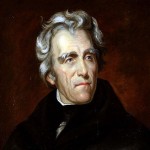
I suppose that things can come full circle too, from a very political family to one that is not so political, and back to very political again. And in that way, I would certainly be one of the latter…and possibly the most politically inclined member of the current family…at least for the Knox/Schulenberg side. I doubt if anyone would dispute that. I have no intentions of running for political office. I might be considered more of an activist, in that I have very specific ideas of right and wrong, and I certainly don’t mind voicing my opinions on matters, as my friends can fully attest. What can I say, except that it takes all kinds of people to make this world what it is.

